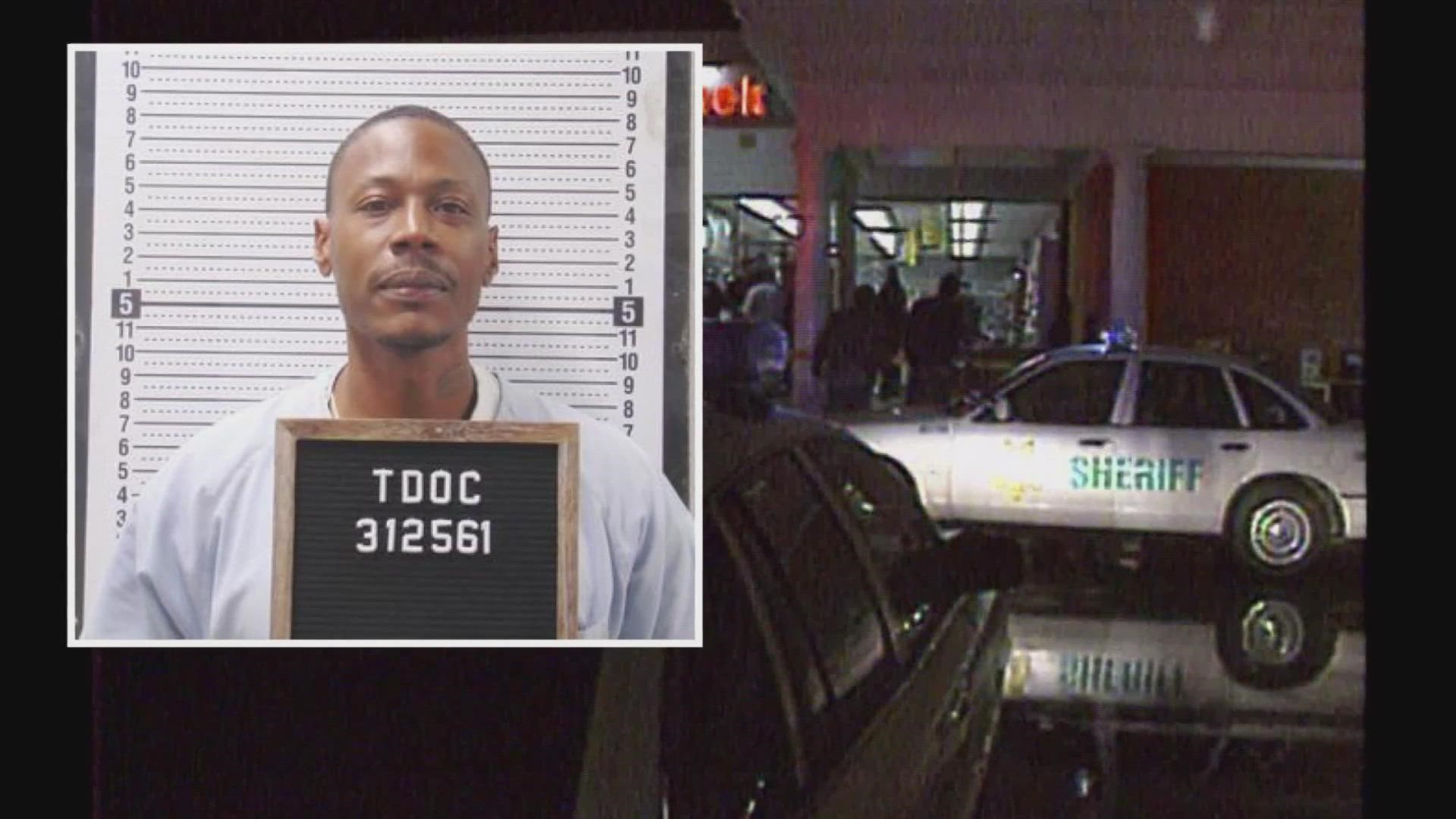KNOXVILLE, Tenn. — When Almeer Nance was 16 years old, he was convicted of murder despite never having pulled the gun trigger in a high-profile killing at a RadioShack.
On January 16, 1996, Nance participated in a robbery-turned-murder at the store, with another man.
Robert Manning shot and killed Joseph Ridings. Manning was convicted of murder and sentenced to life in prison, without the possibility of parole. Nance, tried as an adult, was also convicted and sentenced to life in prison. In Tennessee, that means serving at least 51 years behind bars.
He was also convicted of aggravated kidnapping, adding another 25 years to his sentence. Nance would be 92 years old before he is eligible for parole.
"One day caused so much pain," Nance said. "I want to put forward as many years, as many days, as many months, as many weeks, as much time as possible, to right those wrongs."
In November, the Tennessee Supreme Court ruled life sentences for juveniles were cruel and unusual, based on another Knox County case. Lawyers representing Tyshon Booker argued the case in front of the court and won.
Nance said that his original sentence left almost no room for hope.
"They gave me even more than the sentence they said was cruel and unusual," Nance said. "It turns you inward when there's nothing outward for you to reach for."
He has served 26 years in prison so far.
During that time, he graduated with an associate's degree in business from prison and is working toward a bachelor's degree.
Nance was also recently featured in a documentary made by Al Jazeera which explored his experiences, conviction and circumstances surrounding the life sentence.
"I never had an opportunity to be me, to offer any parts of myself," he said.
The state Supreme Court said that juveniles convicted of murder should be eligible for parole after at least 25 years, and at most 36 years. But since Nance also needs to serve a 25-year sentence for the kidnapping charge, he may need help from the governor's office.
He said he applied for clemency, which would shorten his sentence or make him eligible for parole more quickly. The application first needs to go to the board of parole, which will review it before making a recommendation to the governor's office.
The office said Monday that they haven't gotten Nance's application.

